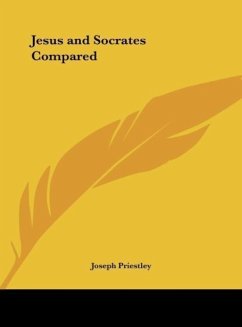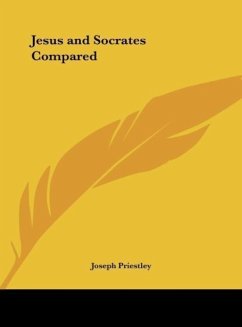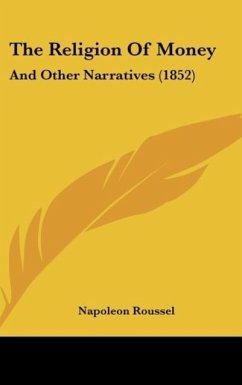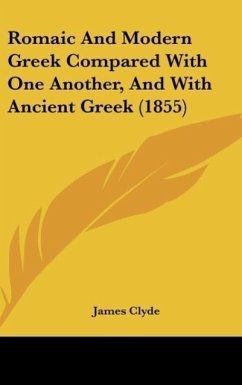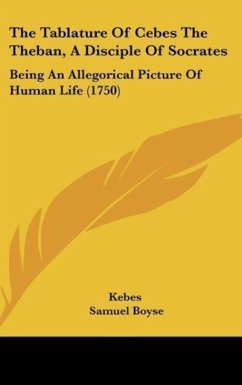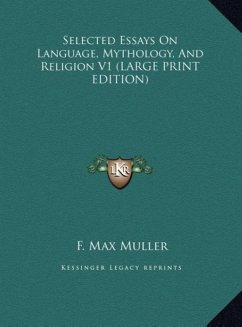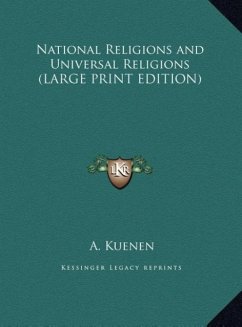Contents: Introduction; Of the Polytheism and Idolatry of Socrates; The Sentiments of Socrates concerning the Gods and their Providence; Of the excellent moral character of Socrates; The Imperfection of Socrates's Ideas concerning Piety and Virtue in general; Socrates's Belief in a future State; The Daemon of Socrates; The Character and teaching of Socrates compared with those of Jesus; The Different Objects of the Instructions of Socrates and of Jesus; Inferences to be drawn from the Comparison of Socrates and Jesus.
Hinweis: Dieser Artikel kann nur an eine deutsche Lieferadresse ausgeliefert werden.
Hinweis: Dieser Artikel kann nur an eine deutsche Lieferadresse ausgeliefert werden.

